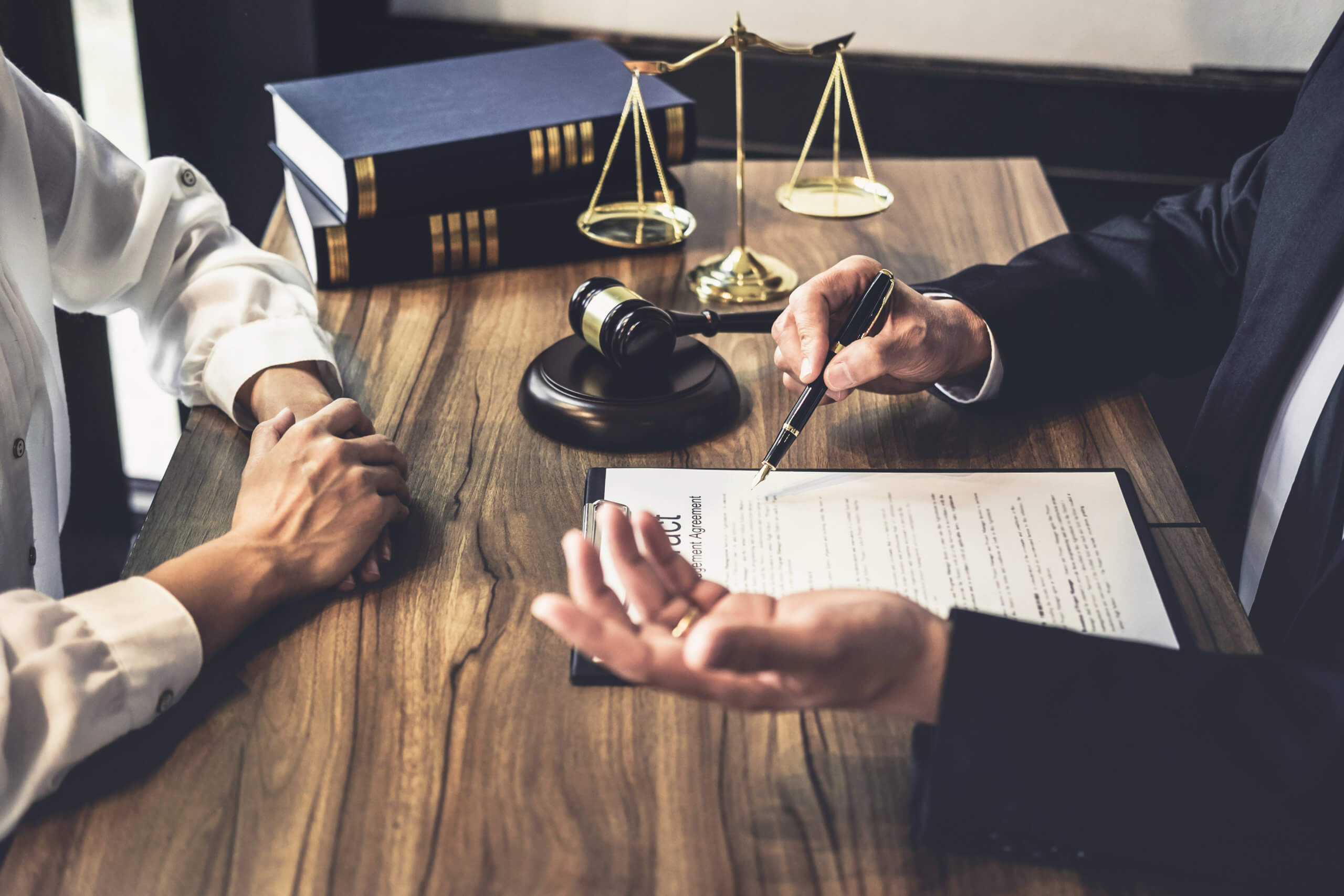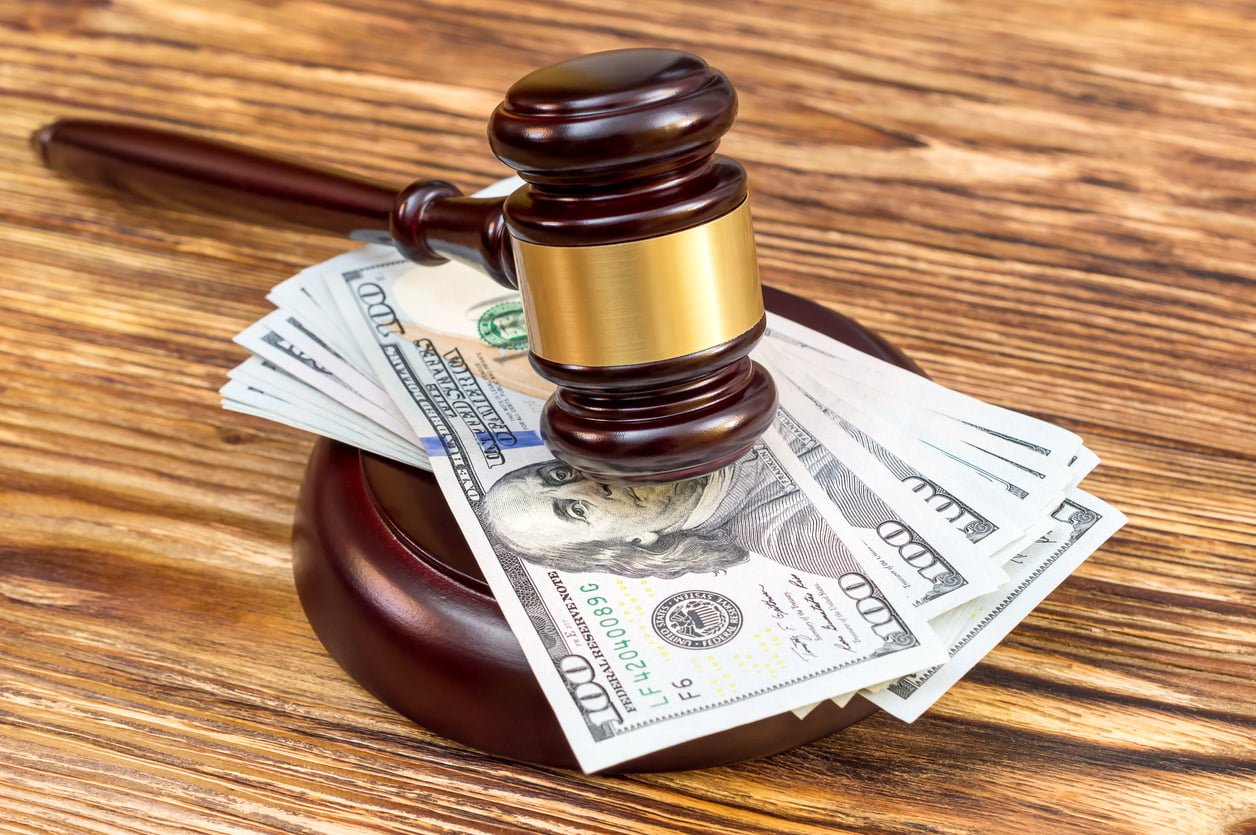
by condormarketing
Atlanta Legal Mediation Lawyers
When you are injured in an accident that was caused by someone else’s negligence, there are usually two ways to get compensation from the at-fault party: be offered and accept a personal injury settlement outside of court, or go through (or at least start) the civil lawsuit process. While a lawsuit might ultimately net you more money than a settlement would, most personal injury cases settle well before trial, and often before a lawsuit is even filed. Therefore, it’s highly recommended to consult experienced Atlanta Legal Mediation Lawyers to help you decide on the best way forward for your case.
Personal injury verdicts are often major headlines. Tens or even hundreds of millions of dollars awarded by juries can make for exciting news. However, you don’t hear as much about personal injury settlements.
Part of the reason for this is that most settlements are kept private due to nondisclosure agreements, but there is another reason, too. Personal injury settlements aren’t usually as high as some verdicts, which makes them a bit less exciting.
Still, with the vast majority of personal injury cases resolved through settlement rather than trials, knowing how settlements are reached and what to expect from them may be essential. Especially, that is, if you or a loved one have suffered a personal injury or are weighing a settlement offer.
Understanding Personal Injury Settlements
Settlement occurs when an insurance adjuster or a defendant (the person or company you are suing) makes an offer of payment to you (the victim).
When might this happen? Almost anytime:
- A settlement offer may be made before a personal injury lawsuit has been filed, but after a potential claim arises.
- It may be made after a court case has been filed and a trial has begun, as long as no final verdict has been reached.
- Some settlements are even reached after trial, while the jury is deliberating since one or both parties might decide they prefer the “sure thing” of a settlement.
Once a settlement agreement is reached, the plaintiff must relinquish all potential claims against the defendant arising out of the underlying accident or incident. The plaintiff does this by signing a full liability release.
For example, in a car accident case, the car insurer may offer a plaintiff $50,000 to settle the case. To receive that $50,000, the plaintiff would have to agree not to file a lawsuit or pursue any other legal remedy in connection with the crash.
Therefore, seeking advice from an experienced and reputable Atlanta Legal Mediation Lawyers is crucial before making a final decision on how to settle your case.
Personal Injury Settlement and Insurance Companies
Settlements are almost always offered when insurance companies are involved, which happens in the vast majority of personal injury cases. Insurers have the assets to pay out claims, and they expect to pay out a certain number of claims as part of their business model.
Insurers are also risk-averse and do not want to put their financial fate in the hands of an unpredictable jury while paying the not-insignificant costs of litigating a personal injury case all the way through trial.
How Settlement Negotiation Works in a Personal Injury Case
Negotiating a personal injury settlement is a little like bargaining to buy something at an outdoor market where haggling is commonplace. You and the buyer (the insurance adjuster) both know roughly how much an item (your total injury-related losses or “damages”) is worth.
You know how much you are willing to take for it, and the adjuster knows how much the insurance company is willing to pay. But neither of you knows how much the other side is willing to pay or receive. So, you go through a process of testing each other, a dance of bluff and bluster that goes like this, sometimes in just two or three phone calls:
- You ask for a high amount in your written demand letter.
- The insurance adjuster tells you what is wrong with your claim—for example, there are questions about who was at fault, or that your lengthy physical therapy seems excessive.
- You respond to these arguments.
- The adjuster makes a low counteroffer to feel out whether you’re in a hurry to take any settlement amount.
- You concede a little bit concerning the adjuster’s arguments and make another demand slightly lower than the one in your demand letter.
- The insurance adjuster increases the company’s offer.
- You either accept that amount or make another counter-demand.
It is usually as simple as that. The main factors determining how an accident settlement comes out are how well you have prepared all stages of your claim— investigation, supporting documents, and demand letter—how much you’re willing to settle for, and whether you are in a hurry to settle.
Subjects of Negotiation with an Adjuster
During settlement negotiations, an insurance adjuster has a right to ask questions and dispute facts in an attempt to limit your right to compensation. Questions or disputes might concern:
- Coverage – Whether the insurance policy in question actually covers the accident.
- Liability – Who was at fault for the accident and your potential share of negligence.
- The extent of your injuries – Whether an injury was disabling or had a long-term permanent effect.
- The nature and extent of medical treatment – Whether the type and duration of procedures or therapies were medically necessary, and whether you had preexisting problems that contributed to your claimed losses (damages).
You should meet an adjuster’s reasonable questions and inquiries with reasonable answers. That is why it’s crucial to have an experienced and professional personal injury attorney Atlanta GA by your side to represent you and handle these negotiations on your behalf.
Keys to Successful Injury Claim Negotiation
How you approach settlement negotiations can go a long way toward making them run smoothly and quickly, with a minimum of stress or aggravation for you, and with a satisfying settlement as the result.
Here are some tips about dealing with a claims adjuster:
-
Be Organized
If you have a conversation with the adjuster, make a note of what was said. If either you or the adjuster have said that you will or won’t do a certain thing, or that something is to occur by a certain date, write a confirming letter or email and send it to the adjuster. Keep a copy of everything you send. If you have agreed to provide the adjuster with information, do it promptly.
-
Be Calm and Straightforward
Insurance adjusters are overworked and underpaid, and they hear a lot of stories every day. They are also human, which means they don’t respond well to abuse or threats. Even if you get an inconsiderate or unsympathetic adjuster, don’t get into a personal battle. Keep your cool.
Your job is simply to show the adjuster that you know how the process works and that your claim is an honest one. Let the adjuster know you believe in the facts you have presented. Avoid high emotions.
If you show the adjuster that you’re making a good-faith claim, you’ll likely get a good-faith settlement offer in return.
-
Be Patient
Although you may have already had to wait a considerable amount of time to get all your medical and income records, try not to be in too great a hurry to settle your claim. One of the tactics claims adjusters use is to make a low initial settlement offer and see if you’re too impatient to continue negotiating.
If you can stand to wait, do not jump at a first offer. Holding off for a little while often increases your settlement. After some time passes, it’ll be the adjuster who will want to settle your claim as soon as possible, and then you’ll be able to get the full value of your claim.
If you work with a Atlanta Legal Mediation Lawyers with vast experience handling settlements and dealing with claims adjusters, he/she will guide you accordingly to avoid the temptation of jumping at a first offer.
-
Be Persistent
The flip side of being patient is being persistent. Don’t let the adjuster sit on your claim. If the adjuster has said that they will do something— make you another offer, or check with a supervisor, for example—get a specific date by which it will be done.
Put everything agreed upon in a confirming letter or email, and when that date rolls around, call and politely ask for a response. If you have asked for information or a new settlement offer, set a reasonable deadline by which you would like the response.
Don’t pester an adjuster by calling every day, but make sure the adjuster knows you are out there and that you will be regularly and thoroughly following up on your claim.
Watch Out For Improper Insurance Company Tactics
Most claims adjusters take an ethical approach to their jobs, but it is important to be ready in case you encounter one who tries to bend (or break) the rules. Let’s look at some improper negotiating tactics adjusters sometimes use and discuss how to respond if an adjuster tries one on you.
“Settle With the Other Company”
An adjuster might tell you that you should contact another party’s insurance carrier because that other party was more at fault for the accident than their insured. Politely remind the adjuster that you are entitled to proceed against any responsible party until someone agrees in writing to be the primary insurance carrier.
“You Waited Too Long”
Do not let an adjuster convince you that a delay between your accident and the start of the claims process means you should give up, or that you need to accept a lowball settlement offer. Remember:
- There is no time limit for filing a liability claim with a third party’s insurance company. You should know the relevant statute of limitations for filing a lawsuit in court, but this is not a deadline for filing a liability claim with the insurance company.
- If you plan to file a claim under your own insurance coverage, take the deadlines listed in your policy very seriously. But remember that your insurance company can’t deny a claim unless it can show that a delay negatively affected (“prejudiced” in the language of the law) its ability to conduct its claims investigation.
Do not concede to the adjuster that the timing of your claim is unreasonable, or has anything to do with the value of your settlement. Keep in mind, though, that there are good reasons to start the claims process as soon as possible.
“You Weren’t Out of Pocket”
It is none of an insurance adjuster’s business whether your lost time from work was covered by sick leave or vacation pay. And, except in California, it is none of the adjuster’s business if your medical bills were paid by your health insurance company or some other insurer.
Under the so-called “collateral source rule,” it is improper for an adjuster to consider—or even ask about—other sources of payment in determining a reasonable settlement amount. That’s because it wouldn’t be fair for the person who caused your injuries (or their insurance company) to benefit financially from things you have bought or earned yourself—like insurance coverage, sick pay, or vacation time.
If an adjuster raises this issue, remind them that they are prohibited from asking about other payments that might help you cover your medical bills or lost earnings. Don’t be afraid to escalate the issue to the adjuster’s superiors if you have to, or to tell them you will report the matter to your state’s insurance department.
Atlanta Legal Mediation Lawyers
If you were injured in an accident due to someone else’s negligence, you have a right to seek compensation for the damages incurred. Working with an experienced, professional, reputable, and dedicated personal injury attorney Atlanta GA increases your chances of getting the fair compensation that you deserve.
Experienced Atlanta Legal Mediation Lawyers at Bobe & Snell Law Office LLC are more than ready to help you navigate the process of seeking compensation, whether through negotiating a settlement offer or filing a lawsuit.
Call us today at (470) 268-5802 or fill out our online contact form to set up a FREE, no-obligation case review/consultation.

Atlanta Legal Mediation Lawyers





